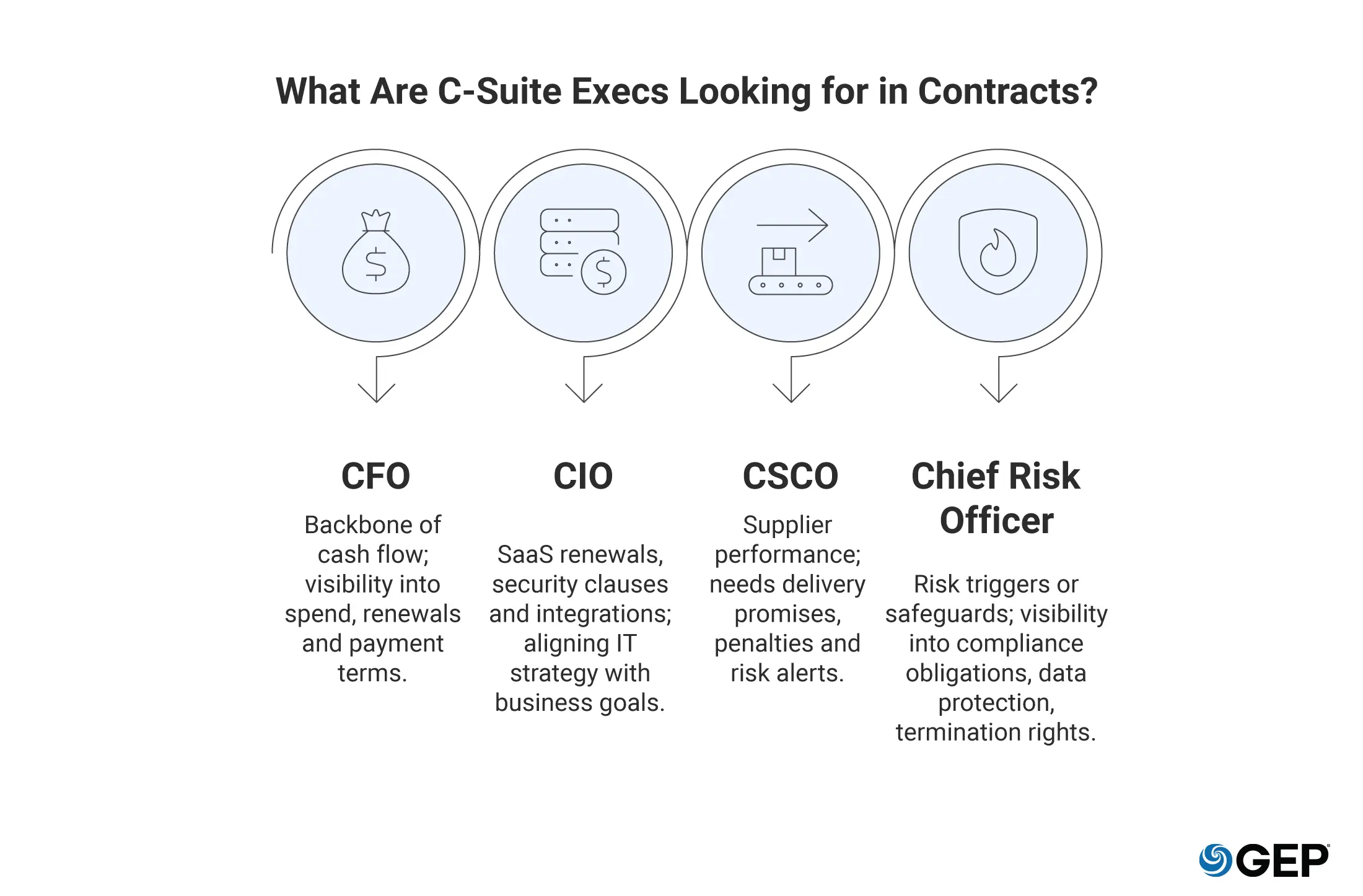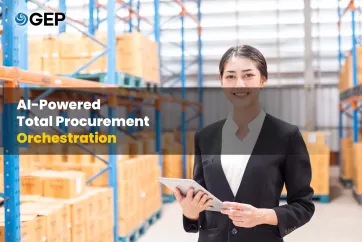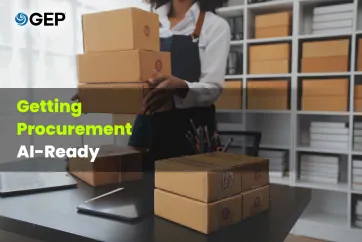
The Enterprise Contract: Elevating CLM from Procurement to the C-Suite with AI
- AI-powered contract lifecycle management (CLM) transforms agreements from procurement documents into enterprise-wide strategic intelligence.
- C-Suite stakeholders, such as CFOs, CIOs, and CSCOs, can extract unique value from the same contracts when visibility barriers are removed.
- Smart implementation of AI-driven CLM creates competitive advantage by turning fragmented contract data into unified business intelligence, driving better decisions.
October 06, 2025 | Contract Management 5 minutes read
Your CFO just walked into the quarterly business review asking for complete visibility into committed spend across all suppliers for the next 18 months.
Now your CPO is scrambling through multiple systems. Some contracts sit in shared drives. Others hide in legacy databases. Many are still buried in email threads.
Meanwhile, your CIO urgently needs to understand which SaaS renewals are coming up and their auto-renewal clauses. Your Head of Supply Chain wants early warning indicators for at-risk vendor relationships that could disrupt operations.
Each of these executives is looking at contracts through a different lens. Yet no one has the complete visibility they need to make informed decisions. The contract has evolved from a simple procurement document into a critical repository of enterprise intelligence. It impacts every aspect of business performance.
Today, digitization, AI and advanced analytics are unlocking the value of contracts, making them more important than ever to the C-suite.
Why Every Executive Cares About Contracts (Whether They Know It or Not)
Modern enterprise contracts serve multiple stakeholders, and each executive has their own perspective. These different, complex needs are why contract management is now a focus at the C-level and not just another procurement tool. Let’s look at the individual priorities for C-level executives when it comes to contracts:
What Your CFO Really Wants from Contracts
Let's start with your CFO. They see contracts as the backbone of financial predictability and cash-flow management. Every contract contains critical financial intelligence. This includes committed spend timelines, payment terms that impact working capital, penalty clauses that could trigger unexpected expenses and renewal dates that affect budget planning.
When contracts are scattered across systems, CFOs can’t accurately forecast financial obligations. They can't optimize cash flow. They miss cost savings through better term negotiations.
AI-driven CLM transforms contracts. It automatically extracts spend commitments. It flags upcoming renewals. It provides real-time visibility into financial obligations across the enterprise. Add that up and you get more accurate budgeting, better cash flow management, and proactive cost optimization that flows to the bottom line.
What Your CIO Needs from Technology Contracts
Your CIO views contracts differently. They focus on technology optimization and digital transformation. Every tech contract has important data. This includes vendor relationships, integration needs, data security rules, and service agreements. All of these affect IT operations and strategy.
Old-style contract management leaves CIOs in the dark. They can't spot chances to consolidate vendors. They can't track security compliance. Auto-renewals catch them off guard when they don't match tech plans.
Smart CLM gives CIOs full technology contract visibility. It spots ways to optimize. It watches security compliance automatically. It makes sure tech investments match business goals.
How Supply Chain Leaders Use Contract Intelligence
For supply chain executives, contracts are the foundation of supplier relationships and smooth operations. Contract terms connect directly to supplier performance, risk levels, and your ability to keep operations running. Contract intelligence also helps drive supplier innovation by embedding performance-based incentives and identifying collaboration opportunities across the supplier network.
When it comes to contracts, delivery promises matter. Quality standards matter. Force majeure clauses matter. Performance penalties matter. All of these affect how resilient your supply chain is.
When contract data stays locked in procurement systems, supply chain leaders can't manage supplier relationships well. They can't spot problems before they hit operations. Smart CLM builds a complete supplier intelligence system. It connects contract terms with performance data. It gives early warnings about potential supply chain problems.
Why Your Chief Risk Officer Cares About Contract Details
Chief Risk Officers need full visibility into compliance requirements. They need to see contract commitments that could create legal trouble. They need early warning systems for potential breaches.
Contracts have many risk-related parts. Data protection requirements. Compliance obligations. Legal protection terms. Termination rights. All need active watching and management.
Without central contract intelligence, CROs work reactively. They find compliance gaps only after problems show up. Smart CLM provides proactive risk management. It watches compliance duties. It flags potential issues. It keeps your organization ahead of legal and contract requirements.
Unlock the Value in Your Contracts
Discover how AI-powered CLM protects your business
How AI Changes Everything
Here's where things get interesting. AI makes CLM more than just a fancy filing system. It helps every leader in your company, with clear visibility and control.
Translating Contract Language to Business Insights
AI breaks down walls between messy contract documents and clean business data. Smart algorithms pull out key terms, dates, money commitments, and performance rules from contracts. Format doesn't matter. Complexity doesn't matter. This creates one searchable database of contract info. Every leader can find what they need.
Smart language processing sorts contract clauses into categories. This lets the system watch compliance, assess risks, and track performance automatically. Legal teams used to review everything by hand. Now it happens on its own. You get live insights across all your contracts.
Getting Ahead of Problems
AI is great at spotting patterns. It looks at past contract performance, how suppliers behave, and market trends. This gives you insights to make decisions before problems hit.
Alerts and dashboards let you set thresholds that align with your business goals. So your CFO gets an idea of which contracts will cost more at renewal time. Your CIO can see when tech needs refreshing and plan budgets. Supply chain leaders get warnings when suppliers start slipping. Risk officers get alerts when contracts near compliance deadlines or show signs of trouble.
Eliminating Approval Bottlenecks
Smart CLM cuts out the slow handoffs and approval delays that bog down contract processes. Smart workflow engines send contracts to the right people automatically. They decide based on what's in the contract, how risky it is, and business rules.
Tech contracts automatically go to the CIO for approval. Big-money deals trigger CFO review. Supplier deals with quality issues go to supply chain teams. This setup makes sure the right people see the right contracts, without unnecessary delays.
Connecting the Dots Across Your Company
AI-enabled CLM connects contracts to your entire enterprise ecosystem:
Integration with ERP systems provides real-time spend tracking against contract commitments.
CRM integration correlates customer contract terms with relationship management.
Financial systems receive automated contract milestone and payment notifications.
This integration puts your contracts in context as part of an end-to-end platform, breaking data out of silos and enabling more data-driven decision-making at every level.
Why CLM Matters More Than Ever
Organizations that treat contracts as strategic assets and not procurement paperwork will gain competitive advantage. AI-driven CLM is the key.
When contracts become visible, searchable and actionable across the enterprise, decision-making improves at every level. Your CFO gains financial predictability. Your CIO optimizes technology investments. Supply chain leaders proactively manage risk with greater transparency and accountability.
Enterprise leaders: do you have the tools and processes to unlock the full value from your contracts? In an increasingly complex business environment, AI-powered CLM is a must for enterprises.
Discover More: Contract Management Software Solutions




